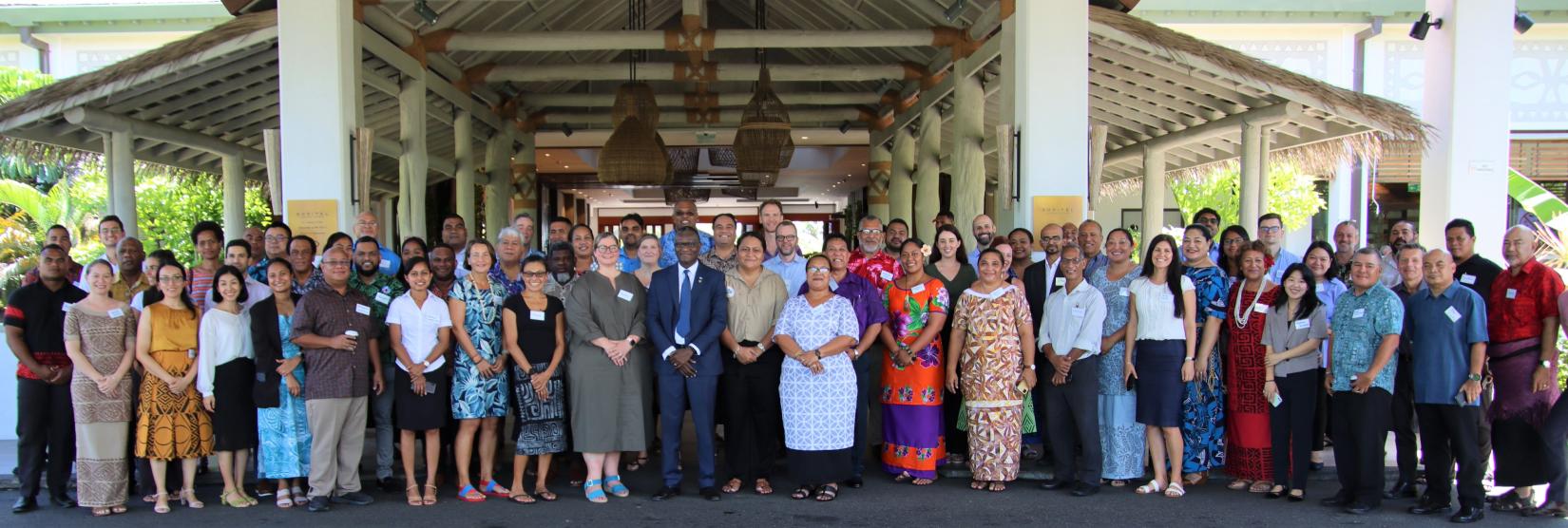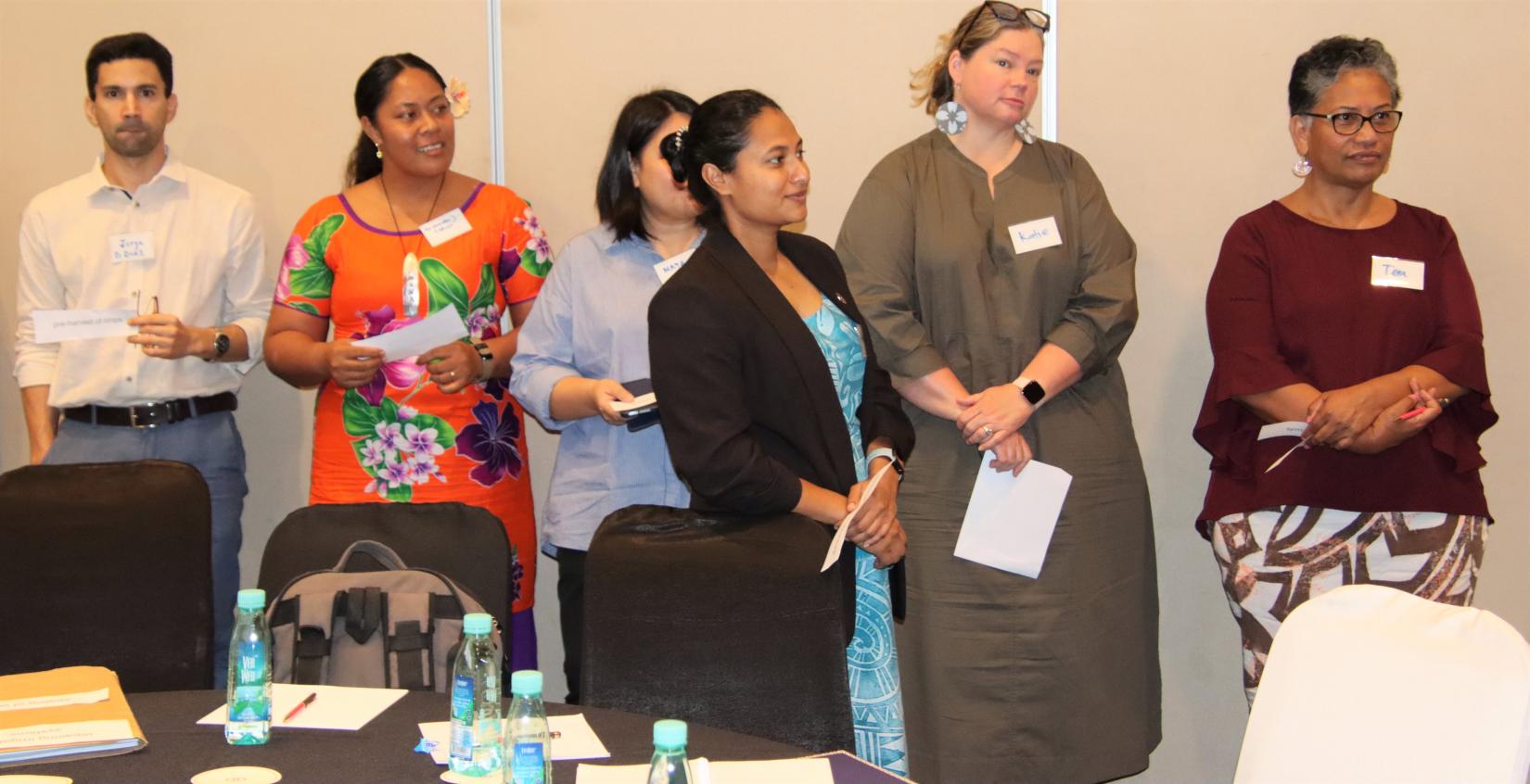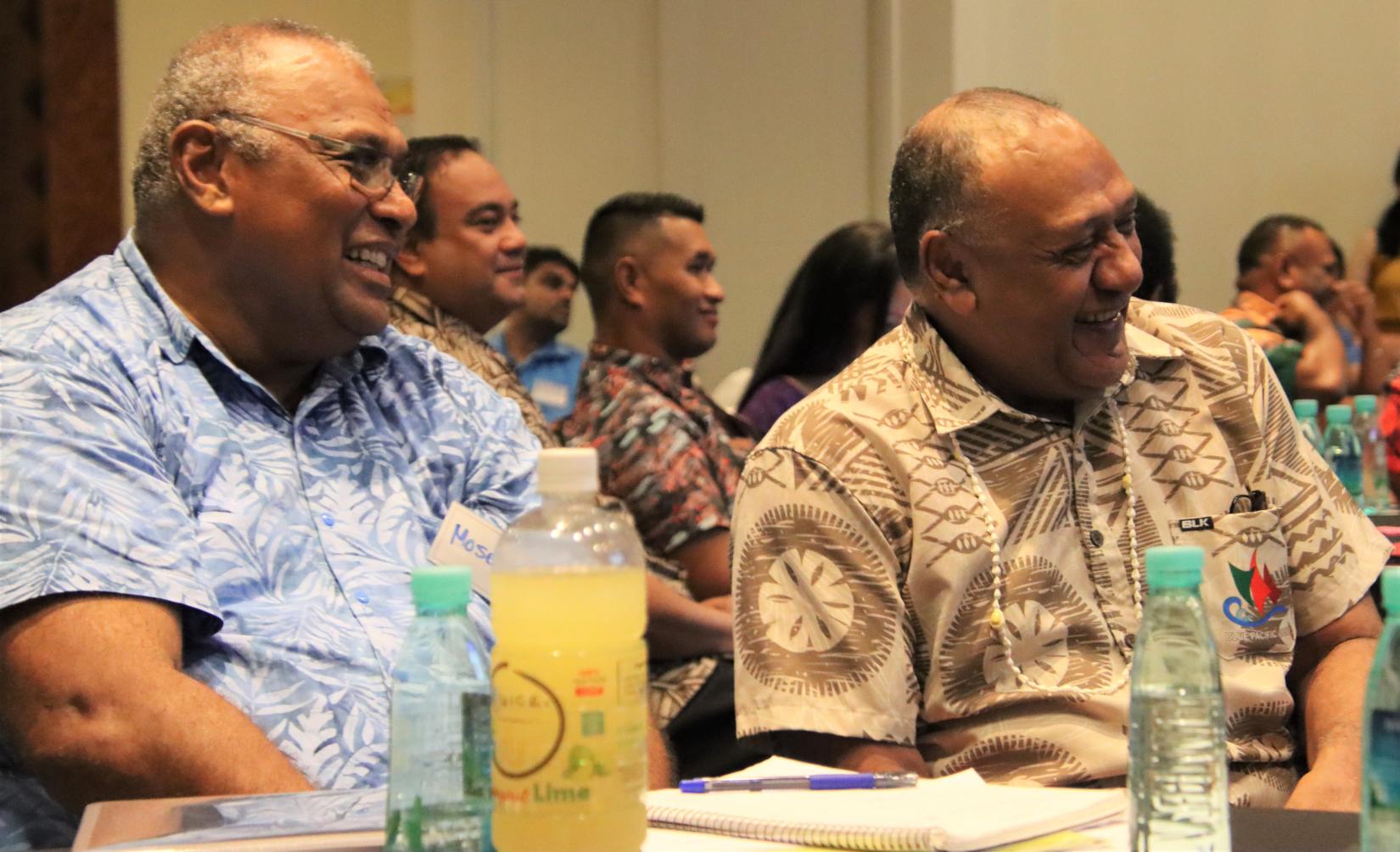Pacific Resilience Partnership spearheads anticipatory action in the region
28 March 2023

NADI, Fiji – In an effort to build resilience to climate change and disaster risk in the Pacific, the United Nations (UN), International Federation of the Red Cross and Red Crescent Societies (IFRC), and Pacific Regional Partners, under the umbrella of the Pacific Resilience Partnership (PRP), are hosting a four-day workshop to sensitize regional and national partners on the importance of anticipatory action, a proactive approach to humanitarian response that aims to reduce the impact of disasters and crises before they occur.
“The United Nations is committed to supporting Pacific Island countries in strengthening these combined efforts accordingly and accelerate progress towards achieving the Sustainable Development Goals,” said the acting UN Resident Coordinator to Fiji, Solomon Islands Tonga, Tuvalu and Vanuatu, Alpha Bah, in his opening remarks.
The workshop will enable shared understanding on anticipatory action and its key building blocks. It will also identify key players regionally and at country-level and establish a coordination mechanism for anticipatory action in the Pacific.

“Governments play a critical role in setting policies, allocating resources, and creating legal frameworks that enable effective disaster risk reduction,” added Mr Bah. Effective coordination and partnerships will therefore be crucial to identify gaps and opportunities in existing early warning and disaster risk management mechanisms and to integrate anticipatory action approaches into policy frameworks.
“To manage the growing impacts of disasters more effectively, we need to increase collective understanding of the entire system of actors and activities that make up anticipatory action. By connecting with the experiences of communities and ensuring these are hard-wired into our policies and processes, we can enhance risk-informed action, and ensure communities build longer-term, more sustainable, stable and secure resilience. As a result, we can minimize the human and economic losses that can set back development progress, " said Katie Greenwood, Head of the International Federation of Red Cross and Red Crescent Societies (IFRC) Pacific Delegation.

"The best way to prepare for disasters is to work and deliver strategically and smartly, working with our resilient communities to strengthen solutions and deliver innovation - events like this provide the opportunities for a cohesive Pacific response to disaster risk management, and the Forum is pleased to be part of these forward-facing, life-saving initiatives,” said Dr. Filimon Manoni, Acting Secretary General of the Pacific Islands Forum Secretariat (PIFS).
The workshop provides a critical opportunity for regional and national partners to share their experiences, best practices and challenges related to anticipatory action with a view to enhance preparedness among communities, improve response times and strengthen resilience to multi-hazard shocks and stressors.
Note:
The Pacific Resilience Partnership (PRP) is the umbrella implementation mechanism for the Framework for Resilience Development in the Pacific (FRDP) and was established in 2017. The FDRP provides high-level strategic guidance to different stakeholder groups on how to enhance resilience to climate change and disaster in ways that contribute to and are embedded in sustainable development. The 3 strategic goals of the PRP are, strengthened integration adaptation and risk reduction, low carbon development, and strengthened disaster preparedness, response, and recovery.
# # #
The United Nations brings governments, partners, and communities together to reduce disaster risk and losses to ensure a safer, more sustainable future.
The Pacific Community supports sustainable development by applying a people-centred approach to science, research, and technology across all the Sustainable Development Goals (SDGs) by interweaving and harnessing the nexus of climate, ocean, land, culture, rights, and good governance; through trusted partnerships; investing in Pacific people; and understanding Pacific contexts.
The Pacific Islands Forum (PIFS) is the region’s premier political and economic policy organisation. Founded in 1971, it comprises 18 members: Australia, Cook Islands, Federated States of Micronesia, Fiji, French Polynesia, Kiribati, Nauru, New Caledonia, New Zealand, Niue, Palau, Papua New Guinea, Republic of Marshall Islands, Samoa, Solomon Islands, Tonga, Tuvalu, and Vanuatu.
The Secretariat of the Pacific Regional Environment Programme (SPREP) is the regional organisation established by the Governments and Administrations of the Pacific charged with protecting and managing the environment and natural resources of the Pacific.
The International Federation of Red Cross and Red Crescent Societies (IFRC) is the world’s largest humanitarian network. The IFRC secretariat supports local Red Cross and Red Crescent action in more than 192 countries, bringing together almost 15 million volunteers for the good of humanity.
For more information please contact:
Jorge Diaz, WFP/ Suva, jorge.diaz@wfp.org
Lisa Williams-Lahari, PIFS/ Suva, lisaw@forumsec.org
Soneel Ram, IFRCS/ Suva, Soneel.Ram@ifrc.org
Evlyn Mani, SPC/ Suva, evlynm@spc.int
Sione Fulivai, SPREP/ Samoa, sionef@sprep.org









